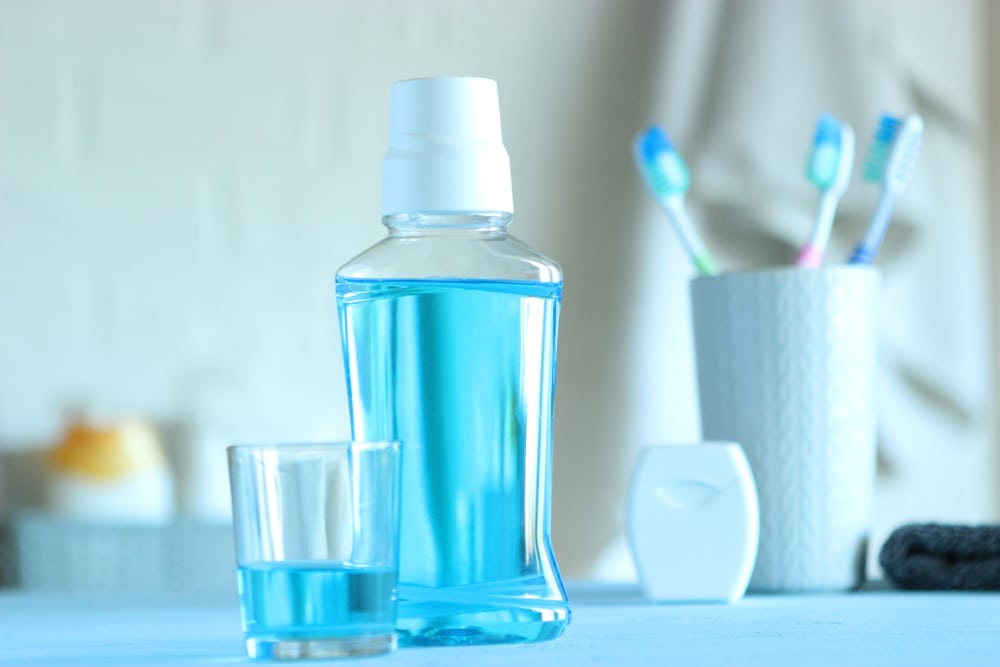Over the years, there have been many studies conducted on the benefits and potential dangers of sodium lauryl sulfate (SLS), a common ingredient in oral hygiene products. There is some debate on this topic, although most experts agree that SLS does more benefits than harm to the human body.
Sodium lauryl sulfate can now be found in most big brand mouthwash products due to the purported benefits that it brings. While the amount of SLS present in mouthwashes vary, most commercial mouthwashes and dentifrices contain anywhere from 0.5 to 2.0% of SLS.
The right amount of dosage of SLS in mouthwash helps to achieve the necessary cleansing and foaming action to keep your mouth clean and fresh. A 1993 study evaluated several mouthwash and concluded that 1.5% of SLS led to a sharp fall in plaque formation among participants of the study.
What is Sodium Lauryl Sulfate?
Sodium lauryl sulfate (SLS) is a surfactant that helps to lower the surface tension between different ingredients (e.g oil and water) by binding them together. This makes SLS an effective ingredient for dissolving and removing stains and residues.
SLS also doubles as a foaming agent, giving off the foamy, bubbly viscosity we see in toothpaste and body-wash products.
The efficacy and inexpensive SLS can now be found in a variety of consumer products including:
- Oral hygiene products including mouthwash and toothpaste
- Hair care products such as shampoo, conditioner, and hair gels
- Body care products including body wash, bubble bath, masks and hair-removal creams.
- Grooming products such as shaving creams, foundation, hand sanitizers, and facial cleansers
- Household cleaning products including laundry detergents, dishwashing liquids, and spray cleaners.
Many have linked the long term use of SLS to harmful health conditions such as hair loss, tooth decay, and even cancer. However, this is untrue as scientific studies have determined that SLS does not cause any of the aforementioned conditions. A study conducted in 2015 also concluded that SLS is an “acceptable surfactant for use in household cleaning product formulations from toxicological and sustainability perspectives“.
You may be interested in: Sodium Lauryl Sulfate Allergy: What to Do and How to Avoid
That said, SLS can be irritating to the skin and eyes, and may also be harmful if swallowed. However, most individuals generally do not experience any medical issues such as skin irritation as most consumer products that contain SLS tend to be washed off and do not stay in contact with the skin for a prolonged period.
People with a known history of irritable skin or currently suffers from skin conditions such as eczema or rosacea should avoid all products that contain SLS to avoid worsening their current conditions. Those who are prone to developing sores in the mouth should also choose SLS-free mouthwash to prevent an outbreak of canker sore.
Best SLS free mouthwash
There are a lot of mouthwash products on the market. However, few are SLS-free. Here are some of the best SLS-free mouthwash available in the market:
- Listerine Antiseptic Mouthwash. Ensure that you choose the antiseptic version as it is SLS-free
- Hello Oral Care Naturally Fresh Antiseptic Fluoride Free Mouthwash
- Lumineux Oral Essentials Flouride Free & SLS Free Mouthwash
- TheraBreath Fresh Breath Dentist Formulated Oral Rinse. All of TheraBreath products are natural and do not contain alcohol and SLS.
- Natures Answer Periobrite SLS Free Mouthwash
- Desert Essence Tea Tree Oil Mouthwash
- Dr. Brite Natural Whitening Mouthwash







